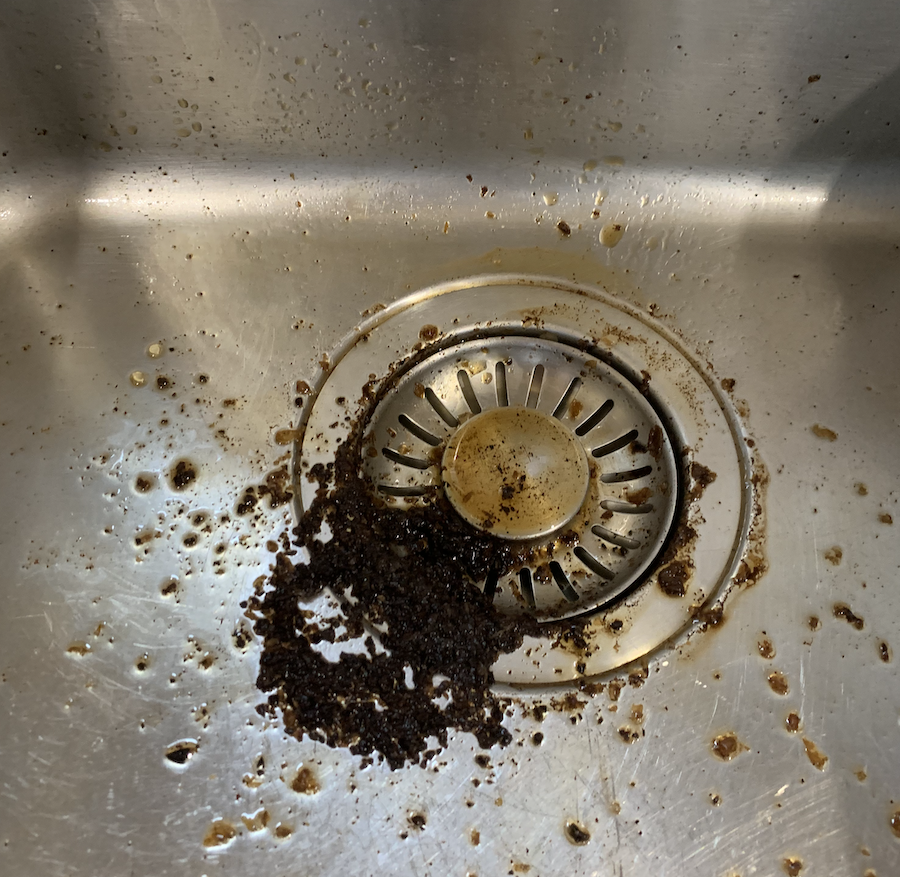Uh oh, I put coffee gounds down my sink… what do I do? Our guide of the do’s and don’ts to putting coffee grounds down your sink.
One of the most popular beverages in the world is coffee. People drink coffee all over the planet, and even discard the grounds left behind after it’s brewed. However, after reading this article, you may reconsider throwing them out.
Coffee grounds have many practical uses around your home and garden and can even help spruce up your beauty routine – so if you don’t make a lot of coffee at home, most coffee shops usually have an abundance of ground coffee that they are willing to give away for free.
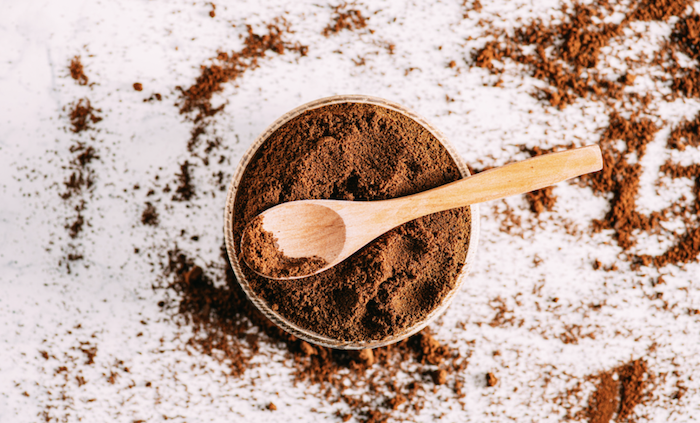
After you finish brewing a pot of coffee, you’re left with used coffee grounds. These grounds can sometimes stick to the inside of your coffee maker, or clump at the bottom of your cup. While you may not think much of them, used coffee grounds can actually be quite useful! Here are a few ways to use them:
– Add used coffee grounds to your compost pile. They make a great addition to your compost and will help speed up the decomposition process.
– Use them as mulch in your garden. Coffee grounds can help retain moisture in the soil and deter pests.
– Scrub your hands with them. The abrasiveness of the grounds can help remove dirt and grime from your hands.
– Make a facial scrub. Mix coffee grounds with a bit of olive oil or honey to make a DIY facial scrub that will leave your skin feeling soft and smooth.
What are coffee grounds?
Used coffee grounds are the end result of brewing coffee. They contain several highly-desirable chemical components, but are generally regarded as waste. Most people throw used coffee grounds away or compost them – though there is an increasing movement to use them in landscaping and other gardening applications.
So the big question is, can coffee grounds go down the sink?
Not only can washing coffee grounds down the sink lead to clogged pipes, but doing so also makes it harder to grind food waste down in the future. Over time, the grounds will accumulate and block your pipes, resulting in a messy blob that requires manual removal.
In addition, when your garbage disposal tries to grind up coffee beans, it may wear down its blades over time – requiring you to buy a new one sooner rather than later.
In one place where I worked, in the break room, it was common for people to put their used coffee grounds down the sink. They didn’t even attempt to do anything else with them. After around 5 years of this happening daily. The whole plumbing system outside this building was blocked.
How to minimise getting coffee grounds down your sink
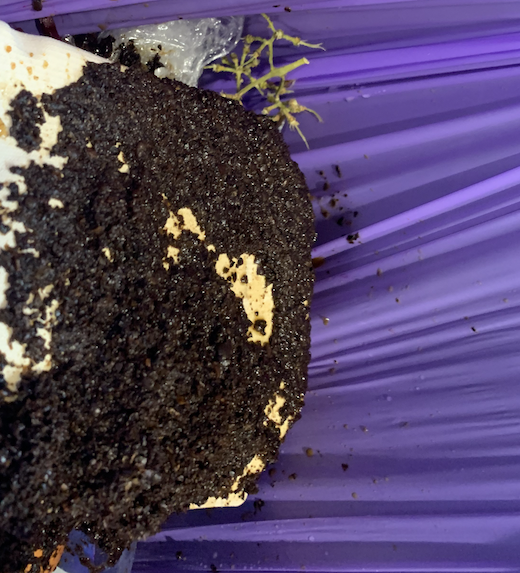

First – Pour out any excess coffee from the coffee pot
Second – Scoop out what you can of any excess coffee grounds into the bin (or a container to reuse)
Third – Put fresh water in the coffee container
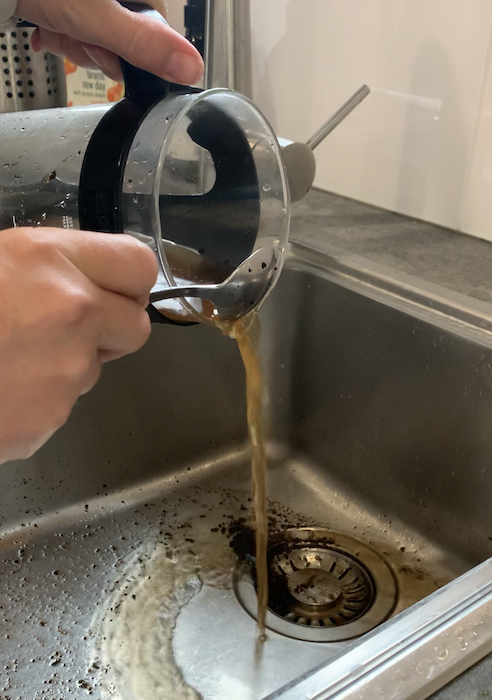
Finally – Use a spoon to catch any grounds before they head into the skin
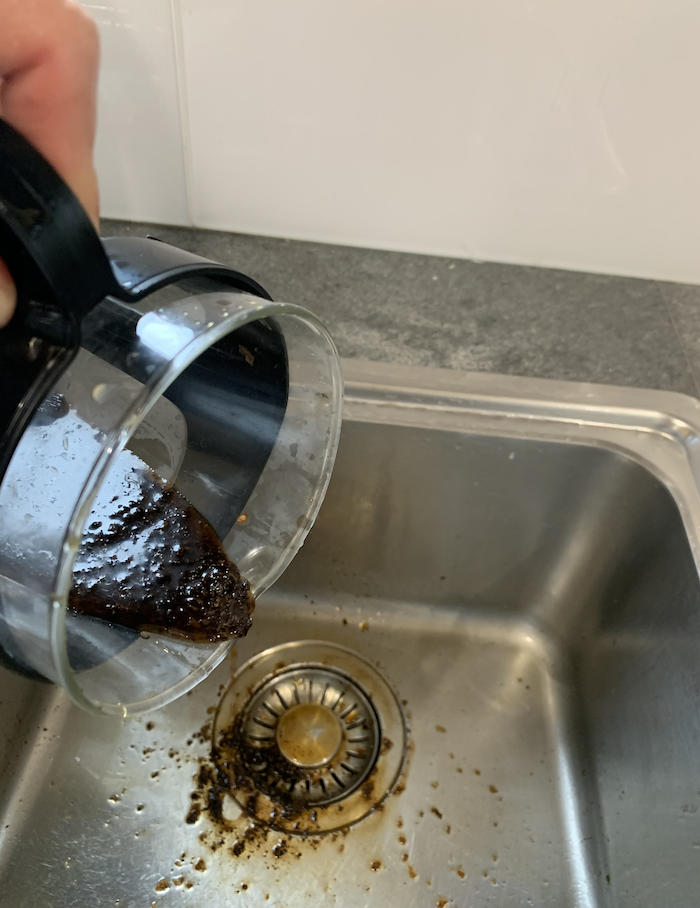
What should I do with my used coffee grounds?
Option one: Fertilize your Garden
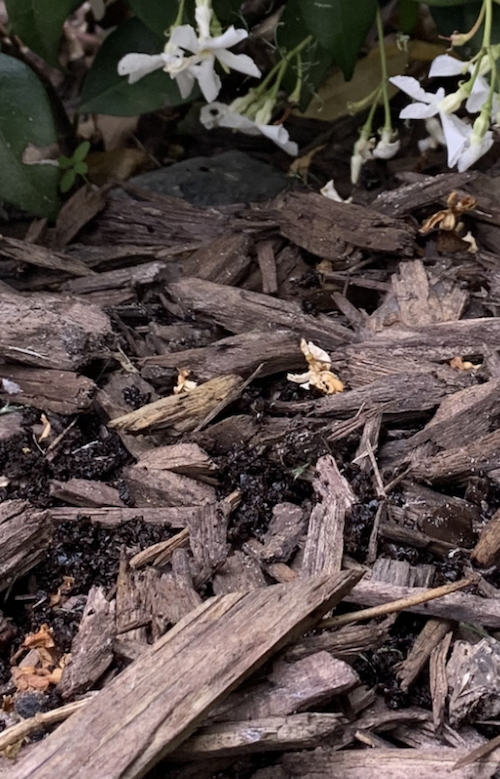
Most soil doesn’t have the essential nutrients plants need to thrive. As plants grow and absorb these vital nutrients from the soil, over time the soil will become depleted. To ensure that your garden always has the nourishment it needs, you’ll need to fertilize it on a regular basis.
Coffee grounds are full of minerals that can help replenish the soil and absorb heavy metals which could otherwise contaminate it. Adding coffee grounds to your garden in this way is also beneficial for attracting worms who clean up debris and improve biodiversity in your garden!
Option two: Remove fleas from your pet
Fleas are a common problem, and unfortunately their bites can cause discomfort and even itchiness. There are several flea-removal products on the market, but many of them contain harsh chemicals that can irritate your pet’s skin and produce unwanted side effects.
Thankfully, coffee grounds may be an ideal natural solution – just make sure to apply them after shampooing your pet and rinsing them off thoroughly.
While there is little scientific evidence to support these claims at this time, some people believe that using coffee grounds can help smooth out hair texture or add shine to fur – both of which could go a long way in reducing the flea burden in your home! However, please be advised that coffee grounds should only be used externally on pets (avoid letting them consume them), as they can also be toxic if ingested.
Option three: Compost it for later
If you don’t have a need for fertilizer right away, you can compost your coffee grounds for later use.
Composting is a natural process that turns organic materials like food scraps and yard debris into a dark, rich material called compost or humus. Adding compost to your yard or garden can help the soil hold onto more nutrients and water, thereby improving the health of your plants. One study found that compost made with coffee grounds and kitchen waste was richer in nutrients than compost made with waste alone.
Another study compared four batches of compost containing 0%, 10%, 20% and 40% coffee grounds. The batch containing 40% coffee grounds produced the fewest greenhouse gas emissions and best quality compost. Other items to refrain from composting include meat and fish scraps, dairy products, diseased plants, grease and oils.
How do you unclog a sink with coffee grounds?
When it comes to clogged drains, many homeowners reach for off the shelf products such as liquid declogging solutions and chemical drain cleaners. While these products may help dissolve clogs, they can also have negative effects on drain lines over time. It’s best to avoid using these types of products if possible, especially if you have older pipes with degraded materials.
Snaking
If you are experiencing a blocked drain, one option is to try and clear the obstruction yourself. This can be done by renting a drain snake from a home store or attempting to snake the line on your own if you have some basic plumbing knowledge. However, if you do this research ahead of time, it will be relatively simple and less frustrating for everyone involved.
Plunger
In a pinch, and if the clog is not from severe grease buildup, a plunger can help temporarily clear a kitchen sink blockage. If the sink has two sides, cover the side that is clear. Then, using a sink plunger (the ones we most often think about when we think of plungers, similar to a toilet plunger). plunge vigorously on the other side. This could force the clog free, allowing temporary sink services until a professional can be called out.
What else can’t I flush down the sink?
When it comes to cleaning up after cooking, remember to avoid putting things down the drain like greasy, oily and fatty foods. These items can make cleaning up difficult and might even clog your drains or get caught in your garbage disposal.
Instead, throw away food that contains starches like pasta, rice, potatoes or potato peels; fibrous items like eggshells, banana peels, fish skins and celery; and anything non-food related like cigarette butts, metal, wood, glass and sponges. When in doubt about where to put kitchen waste, always choose the trash can!
Do coffee grounds block drains?
The short answer is YES – The bad news is that coffee grounds don’t typically break down in water, so over time they can build up and form a clog in your disposal. If this happens, you may need to call a professional to come out and unclog the drain for you.
My sink is blocked with coffee grounds – how do I unblock it?
If your sink drain is clogged, you should first inspect the area to see what’s causing the blockage. After noting the specific problems, make a call to a professional plumbing team who can assist you.If you believe that the issue at hand is straightforward and your sink drain hasn’t been solved, one of the following steps may be able to help: Boiling water can be used to clear a blockage.
Check for any signs of Garbage Disposal clogging. This includes making sure there isn’t anything blocking the blades or area where food goes into the disposal unit. If this doesn’t solve the problem, a sink plunger may be necessary to dislodge whatever’s causing the obstruction. After removing what was blocking, using baking soda and white vinegar can help soften any accumulation that may have caused damage in the past.
If nothing seems to work, it may be necessary to manually clean your pipes in order to remove any accumulated waste or debris.


